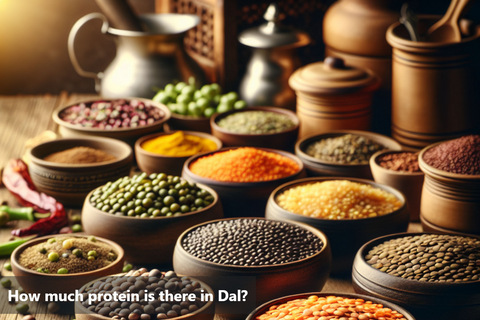
How much protein is in coffee?
Coffee has long been regarded as a go-to beverage for many, providing that morning boost and a moment of relaxation. However, another amazing fact is that coffee also has a connection to protein. As the demand for incorporating protein into daily routines continues to rise, the trend of adding protein to coffee has gained significant popularity.
When we think of protein sources, coffee isn't typically the first thing that comes to mind. But coffee beans actually contain a small amount of natural protein. This intrinsic protein content adds a subtle nutritional element to your daily cup of joe.
Moreover, the concept of enriching coffee with additional protein has opened up new possibilities. From protein powders specifically designed for coffee to the simple addition of milk or cream, there are various ways to enhance the protein content in your coffee. This trend signifies a shift towards more nutritionally conscious choices in our daily lives.
Exploring the relationship between coffee and protein can offer a unique perspective on how we can optimise our dietary habits.
Protein in a Mug: Breaking Down the Protein Content of Your Coffee Fix
Coffee beans, the seeds of the Coffee plant, naturally contain a small amount of protein. These proteins play a role in providing structure and support to the coffee bean as it grows. While the protein content in coffee beans is not as high as in other sources, it contributes to the overall nutritional profile of the beverage.
In both arabica and robusta coffee varieties, free and bound proteins collectively make up approximately 10 to 13% of the dry matter in coffee. Given that proteins consist of smaller constituents known as amino acids, the composition of these amino acids can exhibit significant variation within each type of coffee, influenced by various factors.
In a standard cup of black coffee, which is brewed without any additional ingredients, the protein content is minimal. On average, a regular 8-ounce cup of black coffee contains approximately 0.3 grams of protein. This amount may vary slightly depending on the brewing method and bean variety.
While coffee is not a significant source of protein, it can still be part of a balanced diet when paired with protein-rich foods. If you are looking to boost your protein intake, consider pairing your coffee with protein-rich snacks or incorporating protein sources like nut milk or dairy milk into your coffee routine for added nutritional benefits.
Protein in Different Coffee Variations
When it comes to the protein content in various coffee variations, the levels can differ based on the type of coffee and any additional ingredients like milk or cream.
Espresso: Espresso, being a concentrated form of coffee, contains minimal protein since it is brewed by forcing hot water through finely-ground coffee beans. Typically, a single shot of espresso contains negligible protein, making it a low-protein coffee option.
Latte: In a latte, espresso is combined with steamed milk, which slightly increases the protein content compared to pure espresso. The milk adds a small amount of protein, enhancing the overall nutritional profile of a latte.
Cappuccino: Cappuccino consists of equal parts espresso, steamed milk, and milk foam. The addition of milk in cappuccino contributes more protein than in a latte due to the higher milk to coffee ratio. Thus, cappuccino offers a bit more protein compared to other coffee variations.
The protein content in coffee variations is influenced by the presence of milk or cream. Understanding these differences can help you make informed choices according to your dietary preferences and requirements.
Benefits of Protein in Coffee
- Boosts Energy Levels: Protein in coffee provides a sustained energy boost without the crash.
- Supports Weight Management: Protein helps with satiety and can aid in reducing calorie intake.
- Enhances Muscle Recovery: Protein promotes muscle repair and growth after exercise.
- Improves Cognitive Function: Protein can enhance brain function and mental clarity.
- Supports a Healthy Metabolism: Protein can increase metabolism and promote fat burning.
- Promotes Overall Wellness: Protein in coffee can contribute to a balanced diet and overall well-being
Coffee Chronicles: Adding Protein to Coffee
When it comes to enhancing your coffee routine with an extra boost, adding protein can be a game-changer. There are various ways to incorporate protein into your daily coffee fix, providing not only a nutritional uplift but also a delicious twist to your beverage.
- One popular option is using protein powders specially formulated to mix seamlessly into hot or cold coffee. These powders come in a variety of flavors, allowing you to customize your drink based on personal preferences. They are convenient and offer a quick and easy way to increase your protein intake without compromising on taste.
- In addition to protein powders, another option is to add milk to your coffee. Whether it's dairy or plant-based milk like almond or oat milk, these alternatives not only contribute to the protein content but also impart a creamy texture to your coffee. Moreover, they can be frothed or steamed to create indulgent beverages like lattes or cappuccinos.
- Incorporating protein into your coffee routine can help in maintaining satiety, supporting muscle recovery, and boosting overall energy levels throughout the day. So, next time you brew your favourite cup of joe, consider adding a protein twist to elevate both the taste and nutritional value of your drink.
Brewing Facts
Exploring the protein content in coffee, it is discovered about the natural presence of protein in coffee beans, providing insight into the protein levels in a standard cup of black coffee.
It is essential to strike a balance between protein consumption and overall dietary requirements when enhancing our coffee with protein-rich additives. Understanding the protein content in coffee can aid individuals in making informed choices to support their nutritional needs. By being mindful of the protein content in our coffee choices, one can align their intake with their broader dietary goals for a well-rounded approach to nutrition.
This Blog post is an initiative by Lo! Foods, to provide accurate and Nutritionist / Doctor approved information related to Health. Lo! Foods is India's leading brand for Everyday Functional Foods. Foods designed for specific Health conditions or Needs. Lo! Foods also runs India's largest range of Low Carb Healthy Cloud Kitchens, under the brand names of Lo!, ProteinChef, ATH (All Things Healthy) and DiabeSmart.

















Leave a comment
Your email address will not be published.